 November is an important month for caregivers
November is an important month for caregivers
 An often-selfless job, caregiving plays a vital role in ensuring the care and safety of our loved ones as they age. That’s why November is the perfect time to pay homage to the many caregivers in the U.S. — both family and professional — as it’s considered both Home Care and Hospice Month as well as National Family Caregivers Month.
An often-selfless job, caregiving plays a vital role in ensuring the care and safety of our loved ones as they age. That’s why November is the perfect time to pay homage to the many caregivers in the U.S. — both family and professional — as it’s considered both Home Care and Hospice Month as well as National Family Caregivers Month.
About Home Care and Hospice Month
Started by the National Home Care and Hospice Association (NAHC), November was chosen to honor the ethics, empathy and effective work in giving quality in home care of the many professional registered nurses, home health aides and personal care aides all across the U.S. As a large portion of the population ages, Home Care and Hospice Month aims to raise awareness for the increasing need for healthcare professionals, currently one of the fastest growing industries in the country. Many Americans suffer from multiple, chronic conditions, and, according to NAHC, “By keeping them out of hospitals and in their homes, home care saves money.”
2012’s themes (via NAHC):
Home Care:
Celebrating Freedom: Quality Care at Home
Hospice:
Taking Care and Compassion to the Next Level
Private Duty:
The Right Care at the Right Place at the Right Time
Home Care Aide Week:
Celebrating Love in Action, November 11-17, 2012
About National Family Caregivers Month
Started in 1994 by the National Family Caregivers Association (NFCA) to celebrate family caregivers during the week of Thanksgiving, this annual event has grown into a month long appreciation of family caregivers, as proclaimed by every president since President Clinton in 1997.
“Day in and day out, more than 65 million family caregivers in this country fulfill a vital role on the care team,” says the NFCA website. “No one else is in a better position to ensure continuity of care.” National Family Caregivers Month is a time to thank, support, educate and empower family caregivers.
Physicians Choice Private Duty currently serving Omaha, Eastern Nebraska and Western Iowa provides seniors and their families a complete understanding of the available care options and helps families maneuver through the challenges of the system. All Physicians Choice Private Duty services are directed by registered nurses or social workers with no long-term contracts. Contact us today for help with your senior care needs.
“Physicians Choice Private Duty solves the problems families face in finding home health care providers they can trust. Providers who will focus on strategies that keep parents in their homes. To learn more about our health care services, visit https://private-duty.pchhc.com/services/“



 To say that taking care of a person with dementia or Alzheimer’s is difficult is an understatement. Even so, traveling a long distance with such a person is daunting, but not impossible. An
To say that taking care of a person with dementia or Alzheimer’s is difficult is an understatement. Even so, traveling a long distance with such a person is daunting, but not impossible. An 

 Author/blogger Jane Heller is no stranger to playing the role of caregiver. In an article she wrote
Author/blogger Jane Heller is no stranger to playing the role of caregiver. In an article she wrote 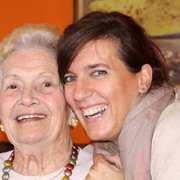
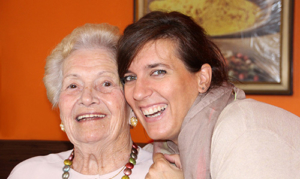 Todays post features real-life stories of how Physicians Choice Private Duty helped an elderly person and their loved ones through a tough decision-making process that ensured each persons individual care needs were met. Names have been changed to respect privacy.
Todays post features real-life stories of how Physicians Choice Private Duty helped an elderly person and their loved ones through a tough decision-making process that ensured each persons individual care needs were met. Names have been changed to respect privacy.
 A new web-based online system for setting up automated reminder and check-in calls called the
A new web-based online system for setting up automated reminder and check-in calls called the 

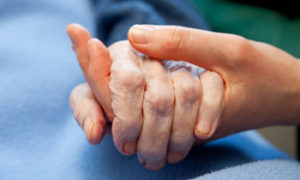 Elder Care Chat is a bi-monthly Twitter chat hosted by
Elder Care Chat is a bi-monthly Twitter chat hosted by 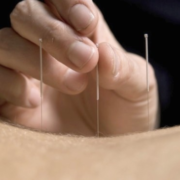
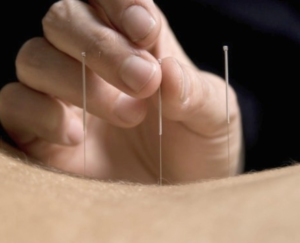 A recent study found that acupuncture is 50 percent more effective than traditional treatments for chronic pain. The results are beneficial for anyone who suffers from chronic pain of any type including arthritis and back pain — common problems in the elderly.
A recent study found that acupuncture is 50 percent more effective than traditional treatments for chronic pain. The results are beneficial for anyone who suffers from chronic pain of any type including arthritis and back pain — common problems in the elderly.

 According to Everyday Health, two clinical trials showed that
According to Everyday Health, two clinical trials showed that 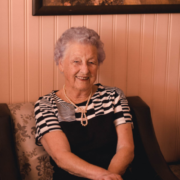
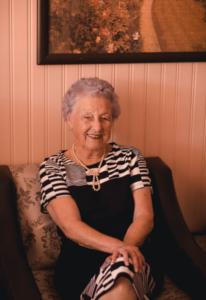 Todays post features real-life stories of how Physicians Choice Private Duty helped an elderly person and their loved ones through a tough decision-making process that ensured each persons individual care needs were met. Names have been changed to respect privacy.
Todays post features real-life stories of how Physicians Choice Private Duty helped an elderly person and their loved ones through a tough decision-making process that ensured each persons individual care needs were met. Names have been changed to respect privacy.

 According to nearly a dozen studies, a high dose of vitamin D can reduce the risk of hip fractures by 30 percent and other bone breaks by 14 percent. These results were achieved by taking a dose of 800 (IU), but a lower dose had no affect.
According to nearly a dozen studies, a high dose of vitamin D can reduce the risk of hip fractures by 30 percent and other bone breaks by 14 percent. These results were achieved by taking a dose of 800 (IU), but a lower dose had no affect.